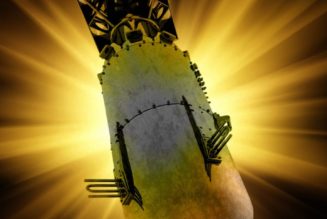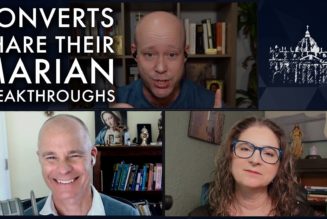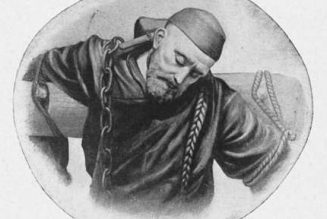 |
Upon hearing the puerile remarks of Governor Andrew Cuomo last week, Chesterton came to mind. The lapsed Catholic governor is usually prone to inanity and offense, but this reached new heights: “We have turned the corner on the Coronavirus plague. It was not faith or prayers that did it. Only hard work and science.” To such blather, Chesterton says: “The madman is the one who has one idea completely right, but one does not know where it fits into the whole of things.” Indeed, as with so many men of modernity, the governor is a madman. Yet he does have one idea right: essential to man’s flourishing is hard work and the pursuit of knowledge. But he does not know “where it fits into the whole of things.” The whole is God, which Mr. Cuomo fails to see, and that blindness is as large as a galaxy. Faith and prayer precede, accompany, and complete every act of man. Denying this is a reprise of the ruinous sin committed in Eden. This original sin was the emancipation of man from the clutches of God. Pride is the only sin that an angel could commit—and Lucifer did, with his non serviam. His was the first act of madness. Mr. Cuomo marches in that line.
Pride can infect even the rays of truth. Man is made in the imago et similtudo Dei, and bears the obligation to use the gifts of intellect and will for the good. Yet, as man deploys those gifts, he knows they are not of his own making. He has received them; they are gifts. To use them without knowing the intended designs of their Maker is to use them to his undoing. Aristotle teaches, “The greatest offense against reason is to use reason against reason.” Put in a Catholic key, to use reason against the designs of God is to leave reason corrupted. Every man in every time stands at the edge of this precipice—attempting to use God’s gifts without the help of God’s grace, or even acknowledging that they are gifts. Isn’t this the chilling lesson of Babel? Most of the human race has been bound to this truth, reflexively making religion the cornerstone of culture since the beginning of time. The very word culture traces its derivation to the Latin word cultus, or ceremonial rites honoring God. Hence the inescapable union between culture and religion. Since the Enlightenment, only the secular culture of Western civilization has exempted itself from this perennial law, with woeful consequences.
If Mr. Cuomo and his fellow travelers so esteem knowledge, they should take note that the Catholic Church alone is its greatest proponent. The very existence of universities is owed to the Church, from the earliest medieval Cathedral schools to the founding of the Universities of Bologna (1088), Paris (1150), Oxford (1167), and a score of others. All emerged, in the felicitous phrase of St. John Paul II, ex corde ecclesiae. The Church recognized that man’s perfection required the progress of knowledge, but that his fullest perfection demanded adoring the sovereignty of God. Otherwise knowledge repeats the ancient lure of the serpent, “Ye shall be as gods.” Kierkegaard captured this modern inversion when he remarked, “For the Middle Ages, the hero was the saint; for modern man, the hero is the genius.” When man is without God, the knowledge he discovers is a noose from which he hangs. Or worse. Mary Shelley was writing more than a Gothic horror story when she penned Frankenstein. It was a premonitory tale of a modern world without God, where “hard work and science” replace “faith and prayer.” In the scene when the monster finally rises from his gurney, he looks down at Dr. Frankenstein and boasts, “You are my creator, but now I am your master.” In a world without God, man is no longer his own because he does not first belong to God. St. Thomas teaches that man is “dominus sui” (master of himself)—not master of reality, only master of himself. Man becomes his own master when he first makes God his Master. Through understanding and free will, he lives by God’s truth, defying the tug of unruly passions. This alone is man standing tall. Without God man finds himself becoming smaller and grotesque. Each man becomes a god unto himself, leaving man only to a Nietzschean triumph of the will.
❧
The twentieth century was the graveyard of these “triumphs.” Beware. One can easily be distracted by the seeming collapse of most of the totalitarianisms, resulting in a lazy trust of the age. Today, a more genteel totalitarianism has appeared. It is the ideology of the unbridled self. No more gulags, but now we have abortion clinics. No more Mengeles experimenting upon children, but now there are governors applauding infanticide. No more KGB, but now an unforgiving thought police patrolling campuses for impermissible “conservative” speech. No more Dachaus, but now parents happily surrendering their children to “gender reassignment,” or giddily cheering their six-year-olds as they are entertained by drag queens in the local public library. No more of Pol Pot’s killing fields, but now we have the regnant ideology proclaiming biological sex differences as bigotry. No more Stalin’s blowing up church after church, but now the shuttering of religious freedom under the veneer of “equal rights.” When God is banished, only chaos ensues. Again, from Chesterton: “When man ignores the supernatural, he does not become natural, but unnatural.”
If this be not madness, what is? Pope Benedict called it the “dictatorship of relativism,” and it certainly surpasses any dictatorship we have ever seen. It is only the Faith that will save us from madness, and only prayer that will win us God’s graces. Perhaps much of Governor Cuomo’s bravado can be laid at the feet of the Church’s silence. Each of his enormities should have been met with lightning bolts of remonstrance. It would have been salutary for his immortal soul and a purifying clarity to the Catholic people. Listen to the bracing words of St. Catherine of Siena, in her letter 16, To a Great Prelate:
Let us listen to St. Paul. Let us speak up boldly to profess the Faith without fear of being uncharitable. In these difficult times, everyone should fear to hear God say to him someday these acerbic words by way of reprimand: “Accursed are you who said nothing.” Ah! Enough silence! Cry out in a thousand tongues. I see that by dint of silence this world has been corrupted, the Bride of Christ is quite pale; she has lost her color, because they are sucking her blood, the blood of Christ which is given by grace… Stop sleeping the sleep of negligence. Do what you can promptly!
Governor Cuomo’s madness is not an isolated madness; it permeates the culture. But not all in this culture have succumbed. Scores of good Catholics continue to adhere heroically to the Faith and fall to their knees in prayer. This time of God’s trial will only strengthen that fidelity. But we must continue to care for the rest who suffer the delirium of the imperial self. Perhaps the graces of this trial will open eyes to the profligate indulgences of modern man. Perchance the isolation will instruct in the old virtues of home and hearth, family, and care for loved ones. Maybe even the lessons of human limitations—or, put more classically, humility—will be learned. In spite of the twenty-first century’s dazzling technological hubris, still we remain toddlers in God’s gracious creation, always vulnerable to the many secrets yet locked in nature. As they are unleashed, for all our brilliance, only a reliance upon God and His graces will bring us peace.
Mr. Cuomo’s madness is not the only effective political strategy. Try sanity, Mr. Governor. Try the Catholic Church.
Photo credit: Getty Images


![The New York Times Magazine profiles Catholic podcasting star Father Mike Schmitz [NYTimes paywall]…](https://salvationprosperity.net/wp-content/uploads/2022/08/the-new-york-times-magazine-profiles-catholic-podcasting-star-father-mike-schmitz-nytimes-paywall-327x219.jpg)





